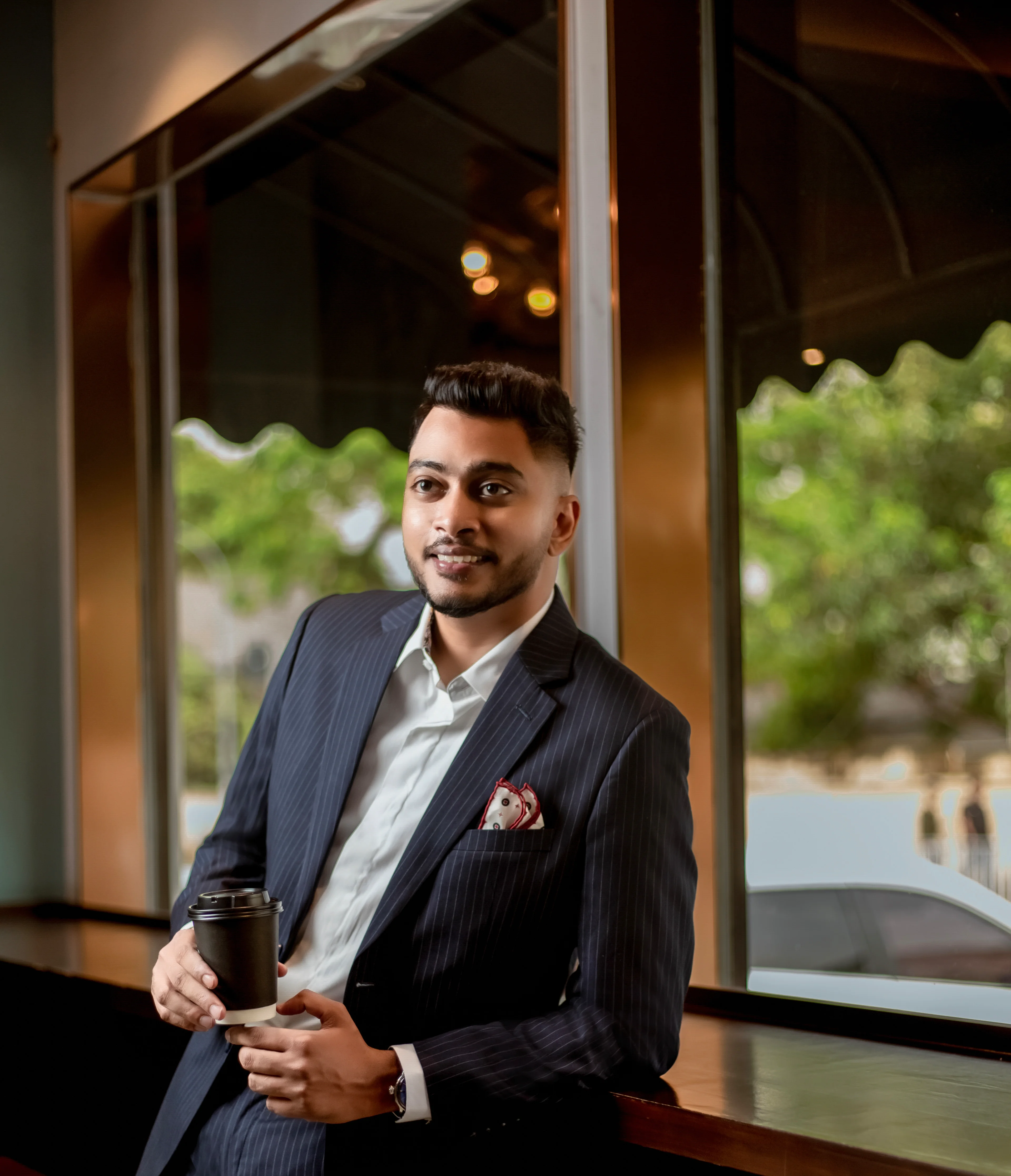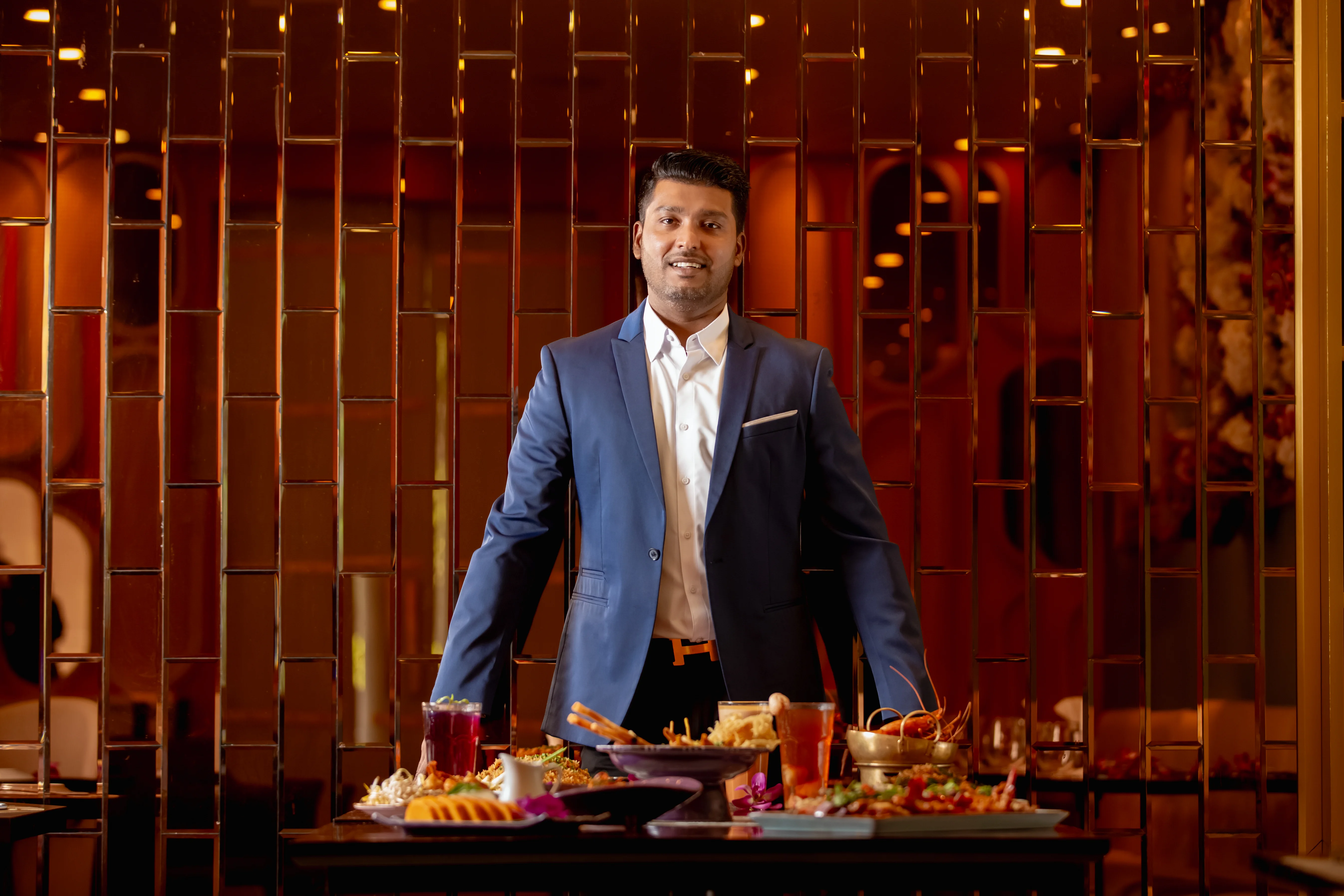
Exclusive Interview with Amjad Hameed CEO of Signature Clothing
Exclusive Interview with Amjad Hameed Marikkar CEO of Signature Clothing | Amjad Hameed talks about legacy, leadership, and building Sri Lanka’s most trusted menswear brand with Business ICON Magazine while sitting for a cup of Coffee.
Quiet Power: Amjad Hameed opens up about carrying forward a 75-year-old legacy, building a brand rooted in trust, and making Signature a household name for refined yet affordable menswear.
Amjad Hameed Marikkar is the CEO/ Director of Signature Clothing. While the Hameedia Group has been in business since 1949, the challenge of inheriting and transforming a legacy brand came with its own set of pressures and breakthroughs. In this candid interview, Amjad reflects on his journey, the values that define Signature, and the bold moves that helped the brand evolve into a household name.
Q&A
Q: Could you tell us about how your career path unfolded, and did you plan to get into this business, or did you eventually find yourself in it?
A: Hameedia group has been in the business for almost 75 years, starting in 1949, over seven decades. If you look at how I got into the system, it wasn’t really a choice—it was expected. I had to be part of the business. But proving myself within the organization was a different story. It took some time to prove myself.It’s one thing to start a business, but inheriting an established legacy and taking it forward is a different difficulty.
Being a generational person, I was very scared that the business might fail because of me, so I had to be very cautious about my decisions. At a young age, I made sure I was agile to certain pressure. I started from the bottom. I was a salesman in the store. I spoke to customers, got engaged, and gained a lot of information about where we stand as a brand. After six months, I decided to take a break and worked outside the company for over a year– that grassroots experience was invaluable.
Then I returned to the company and started with a small leadership role, eventually which led me to officially take over the Signature brand right after the Easter Sunday attacks.
Q: How do you differentiate Signature from other brands, especially with the rise of digital businesses and competition? What is your USP?
A: See, we are a wholesale brand; we distribute and retail in other retailers across the country. We also have our own retail channels, this hybrid model gives us a unique advantage—we distribute to other retailers while also expanding our own stores in carefully selected regions. As a business model, we are the only menswear brand that provides a total menswear solution across A-Z. I think that is the USP we have against our competitors. We have the capacity to put up a store.
Q: Speaking of the reality of doing a clothing business, what major tough aspect have you encountered?
One of the biggest challenges in the apparel industry is maintaining ethical sourcing. Today’s consumers are more aware—they want to know where their clothes come from, how they’re made, and whether the supply chain is responsible. Unfortunately, some businesses cut corners and manipulate the system, but we’ve always taken pride in being a transparent and responsible brand. This ethical approach is one of the key reasons we’ve sustained our position in the market for so long.
Q: Looking ahead, where do you see Signature in the next 10 years, and what do you want customers to remember or say about your brand?
A: While I don’t like to make predictions too far into the future, our immediate focus over the next two years is to solidify Signature as the go-to menswear brand in every Sri Lankan household. I believe we’re already very close to that point. We’ve worked hard on refining our positioning, understanding our customer segments, and creating strong brand recall.
Ultimately, we want Signature to be remembered as a brand that brought quality and affordability together—making everyday style accessible to men.
Q: Have you ever made a business decision based purely on instinct where it paid off really well?
I tend to rely heavily on my instincts and often make decisions in the moment, trusting my gut. I firmly believe that my proactive approach has contributed to where I am today. I’m passionate about fighting for what I believe in and standing my ground—whether the outcome is a success or a failure.
But more than just trusting my instincts, I’ve learned the importance of surrounding myself with the right people. A big part of my success comes from having a strong team that supports and guides me through challenges. The collaboration and trust we have is key to everything we achieve.
Q: How do you handle backlash or criticism that comes your way regarding the brand?
There have been times when we’ve faced criticism, particularly about our pricing or sourcing practices. However, we focus on what truly matters: the customer’s experience and trust. As a household name in Sri Lanka, we’ve always been the go-to destination for essential menswear, whether it’s a wedding suit or a formal shirt. Ultimately, we let our product quality and service speak for themselves, and we maintain faith in our loyal customer base who value what we offer.
We were also criticized for not doing much marketing—no billboards or commercials—for about 10 to 15 years prior to 2019. We were quite silent in that space. But with the rise of Gen Z, who are more digital and social media driven, we realized we needed to show up there as well. That’s when we decided to take a bold approach with some unique, even controversial, strategies. The good part is, those efforts made an impact—people still recall the content. It helped the brand make its mark and create new benchmarks in the industry.
Q: How do you tackle work-life balance in this day and age?
Personally I believe managing stress is key to balancing work and life. A lot of stress stems from micromanaging, but if you surround yourself with the right people and empower them to make decisions, it becomes much easier. As a leader, it’s important to stay focused on the bigger picture, while delegating operational tasks to those who are equipped to handle them. I believe in the mantra of less talk and more action.
Q: We’ve heard about your good employee retention, with many employees staying for five years or more. What steps do you take for employee retention, and how do you hire the right team?
We create a nurturing environment—now, this might sound cliché, but what really works best for us is that we are open to our employees being exposed to various areas of the business, rather than being limited to just one role. We give them opportunities to learn and grow across different functions, which keeps their experience broad and engaging.
Many of our employees start with us as interns or fresh graduates and have the chance to move up and gain exposure to different aspects of the company. This approach allows them to develop a well-rounded skill set, and it’s this variety that helps them grow within the organization. It also leads to a stronger sense of loyalty and job satisfaction.
Q: What do you do when you need a break from work?
People often call me a workaholic, but I try to make time to enjoy life. My work often requires me to travel, but I also make sure to disconnect whenever I can. And I do have a hobby which is more towards farming. I feel connected to animals in general. That’s sort of like the zen zone. Until I keep my mind out of my life for that time being, that is my peace of mind.
In conversation with Thimira Moremada for Business ICON Magazine.

